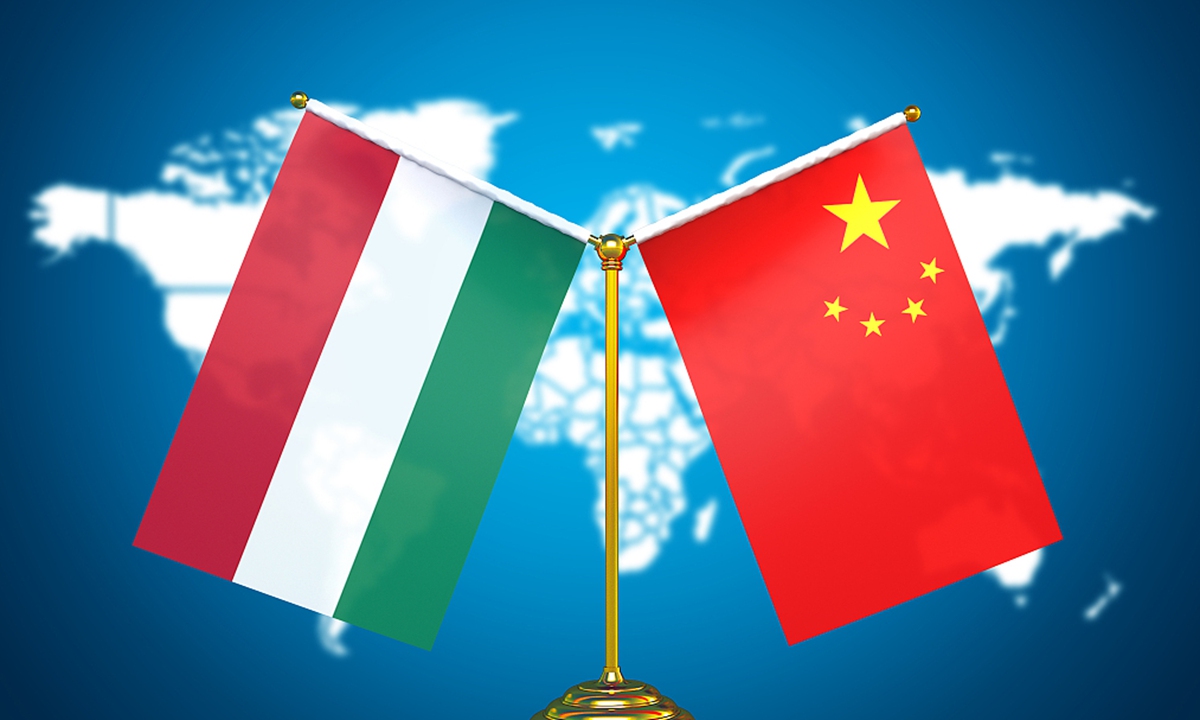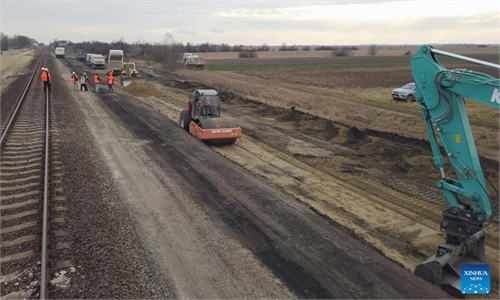
China Hungary Photo:VCG
Chinese investments and the modernization of Hungary's economy are the outcomes of joining the Belt and Road Initiative (BRI), said Hungarian Foreign Minister Peter Szijjarto during the third Belt and Road Forum for International Cooperation that was held in Beijing this week.
Hungarian Prime Minister Viktor Orban and Foreign Minister Szijjarto traveled to China to attend the forum. Hungary is the first European country to sign inter-governmental agreements on Belt and Road cooperation with China. In recent years, China-Hungary relations have developed at a high level, and Hungary is China's trusted friend and partner in the EU.
In his meeting with Orban on Tuesday, Chinese President Xi Jinping expressed deep appreciation for Hungary's long and firm pursuit of a friendly policy toward China, its active support for Belt and Road cooperation and Orban's attendance at the forum for three consecutive times.
Orban said that the Hungarian side firmly believes the BRI will bring major changes to the world, help promote world economic development, and deliver more benefits to people of all countries.
Chinese Foreign Minister Wang Yi, at his meeting with Szijjarto on Monday, said that China looks forward to expanding pragmatic cooperation with Hungary in multiple fields.
Also on Monday, the National Development and Reform Commission, China's top economic planner, and Hungarian authorities signed five cooperation documents covering various areas such as infrastructure, industry, scientific research and development and financing.
"It is great honor for Hungary to have been invited to the forum not only at the PM level, but other leaders [such] as the governor of the Central Bank of Hungary are also taking part in thematic forums. The Hungarian delegation is glad to see the strengthening economic and political cooperation by several MoUs signed at the forum," Levente Horvath, director of the Eurasia Center of the John von Neumann University in Hungary who also took part in the forum, told the Global Times on Wednesday.
During his meeting with Orban, Xi stressed that China stands ready to seek greater synergy between the BRI and Hungary's "Opening to the East" policy, and share development opportunities and outcomes.
In an interview with the Global Times, Szijjarto noted the importance of this strategic policy.
"While the world has been changing a lot, it became obvious that the West has lost its competitive advantage toward the East... A country cannot operate economically successfully if it doesn't have cooperation with the East," said Szijjarto.
As BRI cooperation between China and Hungary deepens, more and more Chinese companies see Hungary as a bridge to the European market and have set up branches in Hungary. Szijjarto believes that the presence of Chinese companies not only contributes to the growth path to be maintained, but also contributes to preserving Hungary's leading role when it comes to the new technological revolution of the world.
Szijjarto refuted the negative voices from the West that have tried to discredit the BRI and China-Hungary cooperation.
"Common sense and rationality is now lacking from Europe. This is a huge problem in Europe. Most of the others are not ready or willing to look at the issue of cooperation with China in a practical way. They would rather look at it in an ideological and political way. The Europeans should change a way of thinking, otherwise we will be lagging behind very far," Szijjarto told the Global Times.
Prime Minister Orban told President Xi that Hungary opposes any decoupling and breakage of supply and industrial chains or the so-called "de-risking" practices, and stands ready to work with China to strengthen cooperation in such areas as economy, trade, investment and connectivity, and deepen people-to-people and cultural exchanges.


